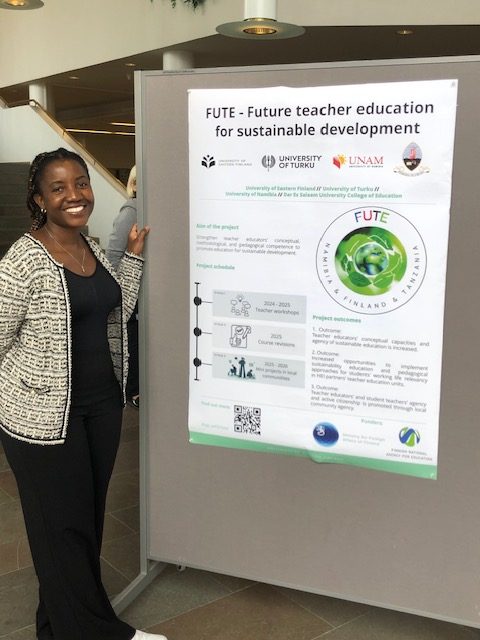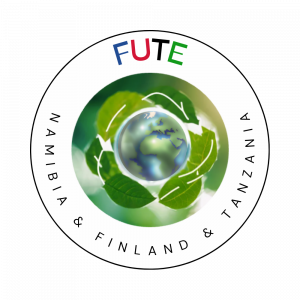FUTE blog series: Education for Sustainable Development in Teacher Education – from local actions to global needs
by Sari Havu-Nuutinen
The world is rapidly changing with increasing environmental and social challenges and the wicked problems of local issues of everyday life. Often these issues and concerns are discussed in the schools, but it has been proved that teachers lack competence to discuss global challenges widely. We need more concrete support to promote sustainable development. Teacher education that includes sustainable development prepares teachers to equip students, future citizens, with the competencies needed to navigate and address these challenges effectively. These competencies rely on the knowledge, skills, and values that empower them to contribute to sustainable development.
In teacher education, the focus must be on Education for Sustainable Development (ESD). The core idea is to find solutions, how to educate and how to use appropriate methods. The ESD promotes a holistic approach to learning that encompasses cognitive, socio-emotional, and behavioral dimensions and supports the development of general working life skills such as critical thinking, problem-solving, and collaborative skills. These are needed for argumentation and research-based decision making. The skills are essential in sustainable development in general.
In our project, Future teacher education for sustainable development (FUTE)– fostering the teacher educators and student teachers’ competence and best practices in sustainability in Finland, Namibia, and Tanzania (FUTE) we aim to increase these competences widely. We also aim to find appropriate pedagogical solutions to support teacher educators to embed the locally relevant viewpoint to their teacher education courses. These solutions could be found from professional development, curriculum integration, problem-based learning, and community engagement. The approaches are widely seen to support the goals of ESD.
On the other hand, in this project we need to recognize the challenges of implementing the pedagogical approaches. Teacher education regulations are always driven from national policies, research outcomes and cultural traditions. Local perspectives become part of global discussion. Thus, it is significant that ESD approach emphasizes the importance of equity and inclusion. It ensures that all teachers and students, regardless of their background, have opportunity to learn and work towards sustainable development goals, work towards ESD and more importantly have access to quality education and opportunities to participate in local and global sustainable practices. Participating in ESD encourages teachers and students to become active global citizens who are aware of their impact on the world and are motivated to contribute positively to local society. This fosters a sense of responsibility and agency.

The goals for sustainable development are widely announced and several policies and institutional documents recognize the goals. These are often general and conceptual contributions and remain at a level without concrete actions. In addition, for example, UNESCO (2014) has informed the support of teachers has been a key condition to the successful adoption and implementation of ESD. So, we need more systematic teacher training and collaborative discussion among teacher educators. This discussion needs to happen inside the teacher education institutions as well as between them.
The research on sustainability in teacher education has gradually increased and there are methodological variations among the published papers. Fischer et al. (2022) have conducted a systematic literature review and analyzed the research done in this area. There is a lack of research focusing on internationally compared experiences and no concrete presentations on how ESD has been implemented in teacher education. In addition, the focus is more on initial teacher education than in-service training.
FUTE project aims to respond the needs recognized in previous studies as well as in policy guidance. We hope that FUTE project could contribute to the local discussions in all three partner countries as well as participate in global development of ESD in the teacher education.
Read more:
-
Fischer, D., King, J., Rieckmann, M., Barth, M., Büssing, A., Hemmer, I., & Lindau-Bank, D. (2022). Teacher Education for Sustainable Development: A Review of an Emerging Research Field. Journal of Teacher Education, 73(5), 509-524.
-
UNESCO, 2014. Shaping the future we want: UN Decade of Education for Sustainable Development; final report – UNESCO Digital Library
